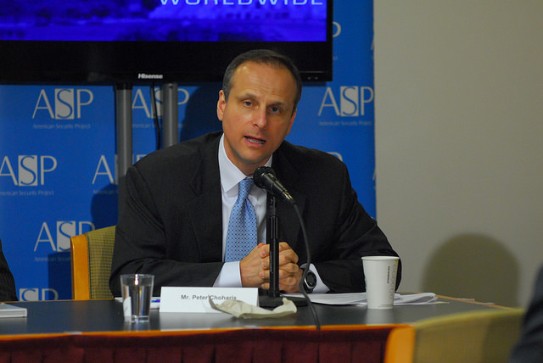
“When the country does well, the business does well”
Podcast: Play in new window | Download
Subscribe: Apple Podcasts | RSS
One of the bright spots in the global economy of recent years has been the growth and development of African economies. By a number of different economic indicators African states, especially in Sub-Saharan Africa, have outperformed many of the world’s top economies. On a continent-wide level the World Bank projects the region’s GDP growth to continue at 5% through 2017. Increased stronger public investment in education and infrastructure as well as a growing consumer population many see this as the ideal time to invest in Africa.
Opportunities for investment in Africa was the subject of the second panel as part of American Security Project’s conference: Africa – Promoting Investment and Extending America’s Security. The panel was chaired by ASP Adjunct Fellow Peter Choharis and the panelists included Patrice Backer, COO of AFIG Funds, Jake Cusack, Managing Partner of Crossboundary, Carolyn Campbell, Managing Partner of ECP, and Fadi Elsalameen, Adjunct Senior Fellow of ASP and Prinipal of YCF Group.
Peter Choharis opened the discussion by highlighting the growth trends for Africa and comparing American and Chinese investment models, as well as challenges and practicalities of engaging in business in Africa. Far from targeting profits as the only goal of investing in Africa, all of the panelists agreed that in order to maintain the growth that the region has experienced in recent years, African economies will have to continue to create jobs for their young populations which should be driven by the private sector. As Fadi Elsalameen succinctly stated:
For us, when the country does well, the business does well. We are part of the communities so we want the communities to succeed.
The panelists’ deep experience in business development and investment in emerging economies lead to a highly informative Q&A session for all those in attendance. Kicking off the question period was the issue of finding investment opportunities below the state level and particularly ones which provide a social impact. Carolyn Campbell pointed out that all of the companies that her equity firm, ECP, works with provide a social impact in some way but it also depends on the sector. Areas she highlighted were in ethical mining funds, education, microfinance, as well as getting basic pharmaceuticals into Africa. Patrice Backer followed up:
The private sector has been maligned in Africa but anything that can be done to strengthen the African private sector will have a social impact.
In the interest of making a real impact from the investment side, Jake Cusack noted that often it is the larger investments that make an impact but entering the markets early is also what matters. “The pioneer payoff,” or being the first mover in some of these “frontier markets” which are growing by as much as three times the rate of developed markets can lead to huge dividends. He also conveyed the importance of the U.S. government and other institutions in laying the groundwork for investment opportunities in riskier environments by providing grants, subsidies and concessionary finance through such programs as Power Africa.
When asked about what kind of consumer products and companies investors look for Campbell said that her firm doesn’t discriminate when it comes to products but a company should “hit a few prongs.”
These included: “(1) domestic facing businesses, (2) businesses that can potentially expand into two or three countries, and (3) something with a barrier to entry, license or a business model that is difficult to replicate [such as a fertilizer].”
Backer reiterated Campbell’s comments by saying that his firm looks for companies that produce products for the local market instead of fast moving goods or exporters.
We want companies that deal with the middle class, whatever that means for each company.
Africa countries are highly diverse in culture, customs, and business environments but corruption is a concern for every investor when dealing with governments across the continent. In response to a questionregarding the panelists confronting instances of corruption, the entire panel acknowledged that it is a constant concern. It is vital to perform due diligence about the operations of the company as well as the government early in the process of preparing investment packages. Elsalameen singled out Ethiopia, where YCF Group engages in business, for the country’s honest business practices.
Overall the panelists were optimistic for private investment in Africa. Campbell noted a shift since 2008 in investment away from China where the government has made doing business there more cumbersome whereas in Africa “there is more money coming in” which has alleviated concerns over raising finances. Elsalameen wrapped up the second panel on a high note by admitting that YCF Group “has not sold any business that they have gotten involved with in Africa” and that is by choice.





